Khords, the Sun's Faithful
It came as a shock to all at our table - even the locals amongst us. I suppose they could not be blamed. The resounding boom that rang out from above was so severe, so monstrous, that I found myself praying for the eardrums of those in the Southern Reaches of the city, and chose not to think of those climbing Ebsa's summit on this day. Maria tried to ask our guide what had just happened - and perhaps he might have answered, if the noise showed any sign of stopping - but for most of us, such an answer was entirely unnecessary. I, for one, knew exactly what had transpired, and had the pit in my stomach to prove it. Enge - the Arenian girl we had picked up in the town prior - dove beneath the table and began to chant a prayer in some alien tongue.I, however, took to my feet as fast as my wobbling legs could allow, thinking only of those outside - those who, any moment now, would feel their organs melting and the horrendous, billowing ash filling their lungs, as they scratched and scraped for air against their blistering skin. I made for the door, but felt a hand on my wrist, stopping me. The hand of our local guide.
I made for the handle anyway, and nearly immediately grew to regret it. The heat outside had already rendered the city into a furnace, and I released the metal doorknob as quickly as I'd grasped it, a fresh burn on my sweaty, twitching palm. Our guide looked to me apologetically, and pulled me down so that I might hear him over the dreadful din.
"You stay," he said. And with that, he sat me down, grasped the handle without so much as a flinch, and emerged into the street.
We waited for some time, but all I truly remember was that first minute or two. As I sat, listening for the screaming of the people beyond... I heard not a single pained cry, nor a single yell for help. It was then that I deigned to open our curtain.
For a moment, all I could see was the grey-orange ash that enveloped the roads, and my heart sank. But then... I glimpsed figures in the street - short, and stocky. The locals, I presumed. Not a single one of them running for cover, nor crying in pain or clutching at their throats.
They danced. Danced, to the roaring tone of their Mother's rage, as the embers swallowed them whole.
Basic Information
Anatomy
Khords are dark-skinned, and typically short in nature, with the average person standing about 4'2" tall. Curiously, it would not appear that a Khord's gender plays any role in their height and weight, instead changing dependent on their family line and heritage. In terms of height, Khords are typically between 3'10" on the shorter end, with their tallest specimens standing around 4'8".
In regards to facial features, a common stereotype is that a Khord man - or woman - possesses what can only be described as a shovel face, with a jaw that could cut glass. This could not be further from the truth. While almost all Khord men grow large, luxurious beards as a part of their religious practice, the truth is that without this intimidating feature, their faces are incredibly soft and round when laid bare. As a result of this, most Khord men grow out their beards as quickly as they are able, and never remove it except in very specific circumstances - which are covered below. Amongst the Khords, round cheeks, wide chins, thick lips and bulbous noses are considered perfectly common.
Perhaps the most curious of the Khords' physical features is their fire resistance, which allows them to brave blazing infernos and often emerge unscathed. This is thanks to the race's hair - which, of course, grows in abundance out of almost every part of their bodies. Studies have shown that the hair of a Khord possesses a flame-retardant quality to it, leading to to become a sought-after material on the mainland. Alas, the Khords regard their hair as sacred, and are not often willing to part with it.
Genetics and Reproduction
Khord can successfully mate with most other civilised species in Varen, with a single exception - the pale, dark-eyed Sylvar. While many theories abound regarding the magical disposition of both races, their polar opposite environments and their varied biology, it is still not yet known why all recorded pregnancies between a Sylvar and a Khord have only gone so far as to miscarry at the start of the second term.
Growth Rate & Stages
Khords tend to reach maturity around the age of sixteen, and share the same lifespan as their Dorozi cousins, possessing a life expectancy of eighty years. The species' women have a slightly longer lifespan on average, living to roughly eighty-five. The women of Khordepi tend to hit menopause around the age of seventy, remaining fertile for a much larger percentage of their lives than any other civilised race in Varen.
In keeping with this extensive period of health, most Khords keep their youth for a very long time, relative to their lifespan. Women do not begin to show signs of aging - such as wrinkles, drooping skin and grey hair - until they are sixty-five or older, and men do not begin this process until they reach the age of sixty. However, once this transition is made, a Khord ages very rapidly, spending their last decade or two growing noticeably weaker with each passing day. While this can be unnerving to foreign species, the same vice versa can be said for the Khords, who view the extremely gradual aging and decay of the other races as a deeply-disturbing fate they would not wish on their worst enemies.
Dietary Needs and Habits
Additional Information
Facial characteristics
Civilization and Culture
Beauty Ideals
Gender Ideals
Courtship Ideals
Relationship Ideals
Parenthood out of wedlock is accepted, so long as the mother and father are romantically involved. Divorce can be accepted, should the theocratic elite of their land deem a couple's reasoning for doing so sound. Acceptable reasons include but are not limited to; abuse, infidelity, and long-term abandonment. Annulments are also offered if one or both people were not of sound mind when marrying, or the marriage wasn't consummated.
In Khord culture, incest is considered an abomination to be avoided at all costs, and any coupling between family is heavily shunned. If discovered, incestuous couples are seperated, and sent to different religious sites in the north and south of the island to be "corrected" by Druids of Fire.
Average Technological Level
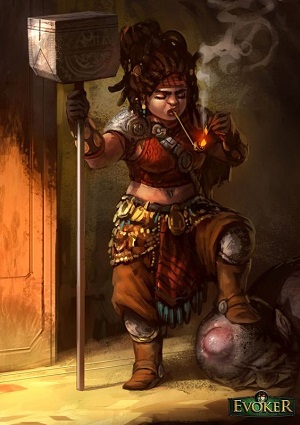
After the race's return to their ruined homeland - after the Cataclysm of centuries past - a lesson was learned by the Khords - one, it would seem, was not afforded to the people of Olthambria. The epiphany was simple. Mortal souls were not to be trusted with such dark and twisted machinery. Even in its relatively primitive state, the railways, rifles and electrical lights of the present day would once again give way to the very same engines of destruction that tore the moon asunder, and rendered their country into an island in the first place. The Druids of Fire would not allow it. The people of Khordepi would not allow it. And so, barring a handful of harmless technologies - harvesters, tractors, sprinkler systems and the like - a unanimous decision was made to destroy every last piece of technology from that old, broken age, and start anew. Today, the Khords' most advanced technology exists solely for the purpose of farming. The people of this isolationist holy land rely on none other than the Druids of Fire to warm their homes and light their streets, returning to the ways of their ancestors and enjoying a slow, simple life, aided by the magics of Ebsa and Medus.
Culture and Cultural Heritage
Khordepi is a deeply-spiritual society, run by a constitutional monarchy. Their ruling figures – the Heralds of Ebsa and Medus – are merely symbolic, with the actual governing done by a council consisting of Khordepi’s theocratic elite. Khords hold the ideal of community very highly, and most denizens of the island work not just for their families, but for their brothers and sisters of the faith. The Khords’ religion is a unifying force, and many folk do all they can to spread its word and further its interests.
Although Khord adventurers are rare compared to, say, Dorozi, it is not unheard of for able-bodied men and women to take on the holy mission of spreading their Mother’s word to the outside world. While this seldom works, it has not yet dissuaded them from trying – much to the dismay of many an Olthamite. Other Khords venture beyond their homeland for commerce, delivering bounties of crops all across the continent. Primarily, these journeys take them to Dorozar and Sylmaneth. A Khord’s physical prowess and lack of technology often sees them using Druidic magic, repurposed farming tools, and heavy bludgeoning weapons in battle.
Faith
The Khords share a particular tradition with their Sylvar neighbours - the worship of a dead god. In their case, this entity is their Father - the northern, dormant volcano of Medus, whose life was cut tragically short by the Cataclysm the Arenian Empire brought forth, tearing his body asunder. Fortunately, all was not lost. The mother of Khordepi - the noble, beautiful Ebsa - survived the disaster that wracked their island nation, and is subject to many offerings with every passing day. Food, beautiful wooden carvings and pieces of jewellery are all cast into the active volcano in prayer, with hundreds of Khords making the day-long climb to her summit almost constantly. She is their last surviving parent, and they will make sure she feels loved, for however long she has left.Ebsa being an active volcano, it is not uncommon for the city at her base - Desathus Ebsa - to feel the rumbling and churning of earth and fire within her; and on the few occasions she erupts, a colossal celebration is held. All work ceases for the day, and Druids take care to divert the flow of magma away from their city through tactful manipulation of the earth in the foothills, feeding it into a network of ancient canals and tunnels to travel far, far undergound. Children are kept close to their parents in these events, and fully-grown Khords may prance and celebrate in the streets at their mother's blessing, obscured and silhouetted by the torrent of burning ash flowing down their roads. The braver of the faithful will even travel to these canals, and bask in the light and glory of their Mother's blessing. During these celebrations, ancient music fills the streets, feasts are held in family homes, and grand services take place throughout the cities' temples. Lit beacons inform the entire country of their Mother's outburst, and the festival spreads to cover the entirety of the island. None, however, receive an event quite so spectacular as the city of Desathus Ebsa - a mere few miles from the erupting volcano.
Such a visceral celebration of life can be offputting to uninitiated foreigners, and has been known to unnerve - or at worst, terrify - visitors to the city. As such, unless they wish it, non-Khords caught in the midst of this phenomenon are often kept indoors; be it at an inn, their own home, or a welcoming local family. In the rare occasion that an outsider wishes to be involved in the celebration, they wiill be gifted a shirt, fashioned of Khord hair, as a means of protecting them from their Mother's raging, burning love. Such a gift is considered one of the kindest gestures a Khord can make to their guest, and foreigners are expected to treat it with the utmost care and respect.
Common Customs, Traditions and Rituals
- Khords take great pride in their food, and their ability to make it. When a Khord eats a meal made by another, they will try their hardest to find something - anything - good to say about it.
- Summer and aututmn are considered to be the most important seasons in the Khords' calendar, and it is doubly expected in this time of year to better serve one's community. During these months, it is very common to find people holding feasts in the middle of their fields, leaving out food for animals, or performing any other random acts of kindness.
- Khords greatly appreciate earthy colours in their attire - primarily greens and browns - and incorporate them into their clothing wherever they can. It is felt that these colours bring them closer to the earth they rely on for their harvest.
- No Khord household is complete without a treat bowl - often situated close to the front door. Inside this bowl are a number of honey candies (very easily obtained from any Khord beekeeper) and dried fruit, as a means of welcoming any guests to your wonderful home.
- On the third night of every month, it is considered prudent to draw a circle on your doorstep, made from soil taken out of your garden, in order to ward off any demons that may see fit to wander the island on this evening.
- Khords do not possess their own national currency, and instead trade through bartering and exchanging of food, clothes and other goods and services. For example, in order to buy that coat, you might offer six loaves of your finest bread, or even offer to neaten up the seller's garden, should they need it doing. It is also worth noting that Khords do often possess money, should they need it, normally holding onto a few Dorozi obsidian shards, Sylvar amber orbs, or Veran Central gold pieces.
Common Taboos
- Khords take great pride in their food, and are eager to share it with all they meet. As such, to refuse to even try a bite of a meal offered to you by a Khord is considered a severe slight. Likewise, if you are to attend the home of a Khord, never, ever bring your own food. To other cultures, it may seem polite, but to a Khord, there is no greater insult.
- There are many on the mainland who still deem it appropriate to use the Old World's term for this noble people. Namely, the word Dwarf. If you wish not to see a Khord grow angry - or perhaps more likely, cry - do not use this word to describe them.
- When visiting the home of a Khord, you can make yourself at home - barring one particular thing. You do not, unless in extreme circumstances, touch, tamper with, and especially not put out a Khord's fire.

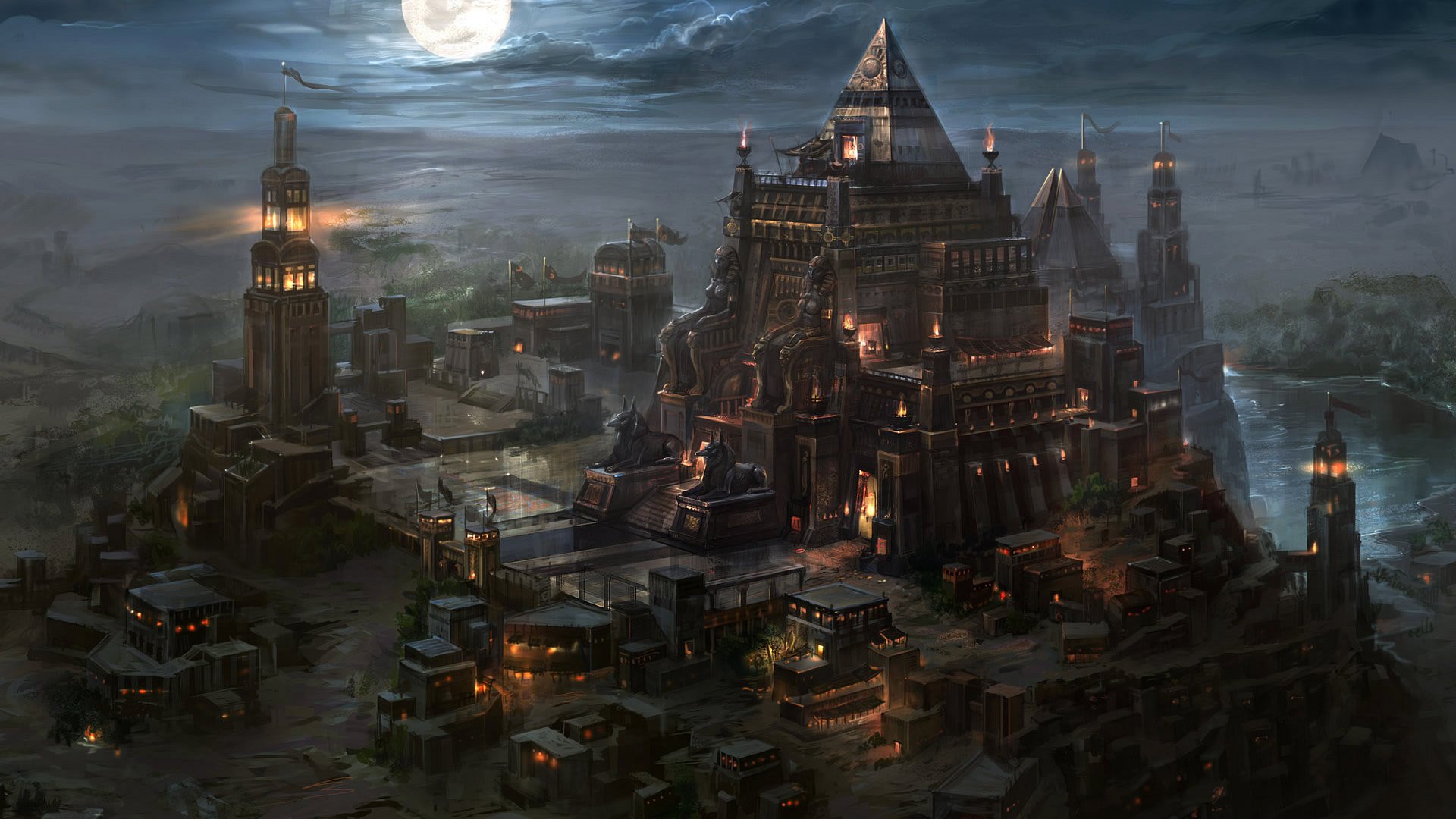
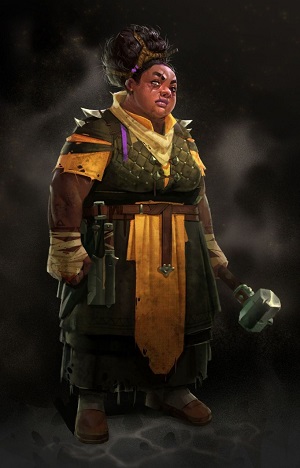
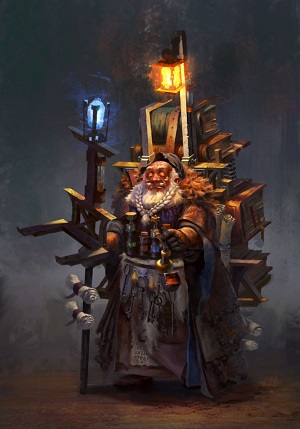
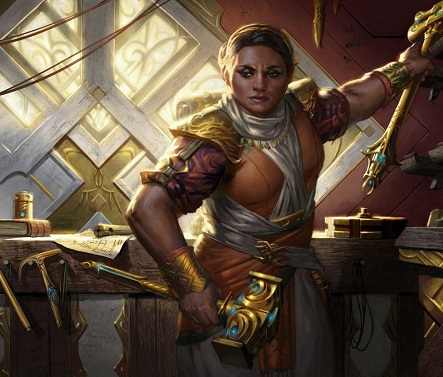
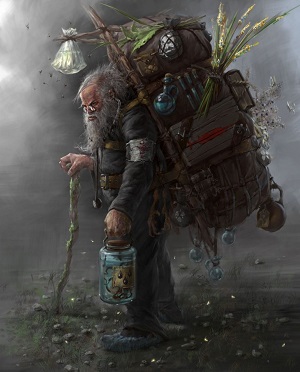
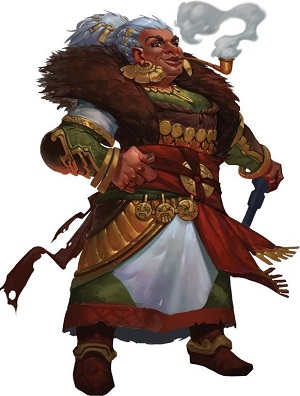
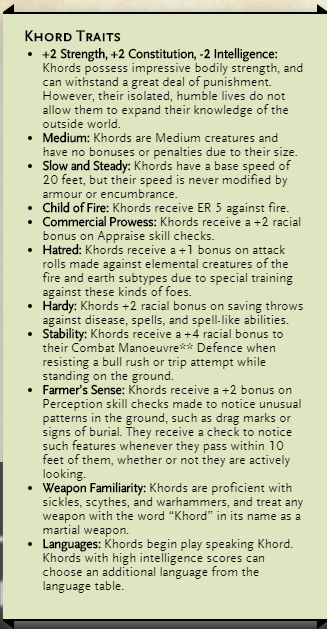


Comments